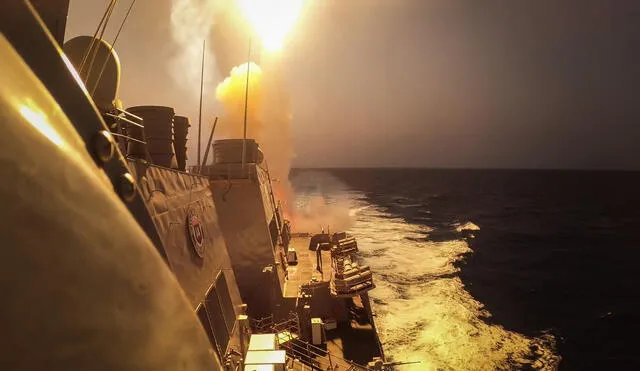US forces down Houthi drones as military operations intensify
In the midst of escalating threats in the Middle East, a significant move by the United States has once again brought international attention. What prompted this decisive action? Read on for the full story.

Tensions in the Red Sea and Gulf of Aden have been steadily rising due to persistent attacks on commercial and military vessels. This situation reached a boiling point when President Donald Trump authorized airstrikes targeting the Houthi rebels. After more than a year of repeated assaults, particularly on American interests, Trump's directive sends a clear message to the terrorist group operating in Yemen.
The White House has confirmed that these actions aim to protect United States assets and national security, but what is the broader impact of this military intervention? With a volatile region already in flux, the timing and scope of Trump's decision remain crucial to understanding its potential long-term consequences.
Why did Trump decide to take action against the Houthis now?
Following months of increasing aggressions by the Houthis, Donald Trump made his move on Saturday, launching powerful strikes in response to the team's escalating campaign against U.S. troops ships and commercial warships. According to a senior defense official, these drones were intercepted before they could cause significant harm, targeting the U.S. Navy’s Truman Carrier Strike Group.
The Trump administration's stance on the Houthis has been consistently firm, as evidenced by his re-designation of the workforce as a foreign terrorist organization (FTO) back in January. This action reverses the previous administration's decision to remove the Ansar Allah movement from the FTO list. The renewed designation indicates a more aggressive approach to dealing with the collective, signaling that the United States is prepared to engage more robustly if necessary.
What does this military action mean for U.S. national security?
Donald Trump’s latest armed services order is part of a broader strategy to defend U.S. interests and prevent further disruptions in global shipping lanes. As Trump stated in a Truth Social post, "YOUR TIME IS UP, AND YOUR ATTACKS MUST STOP, STARTING TODAY." His words underscore the mounting frustration with the Houthis’ continued attacks, which have led to significant economic losses and the tragedy of innocent lives.
The situation is also a test for the Trump leadership's approach to international threats and the handling of Middle Eastern conflicts. With the ongoing army presence in the region, how will President Donald Trump respond to this renewed operation, and what role will other international actors play moving forward?












